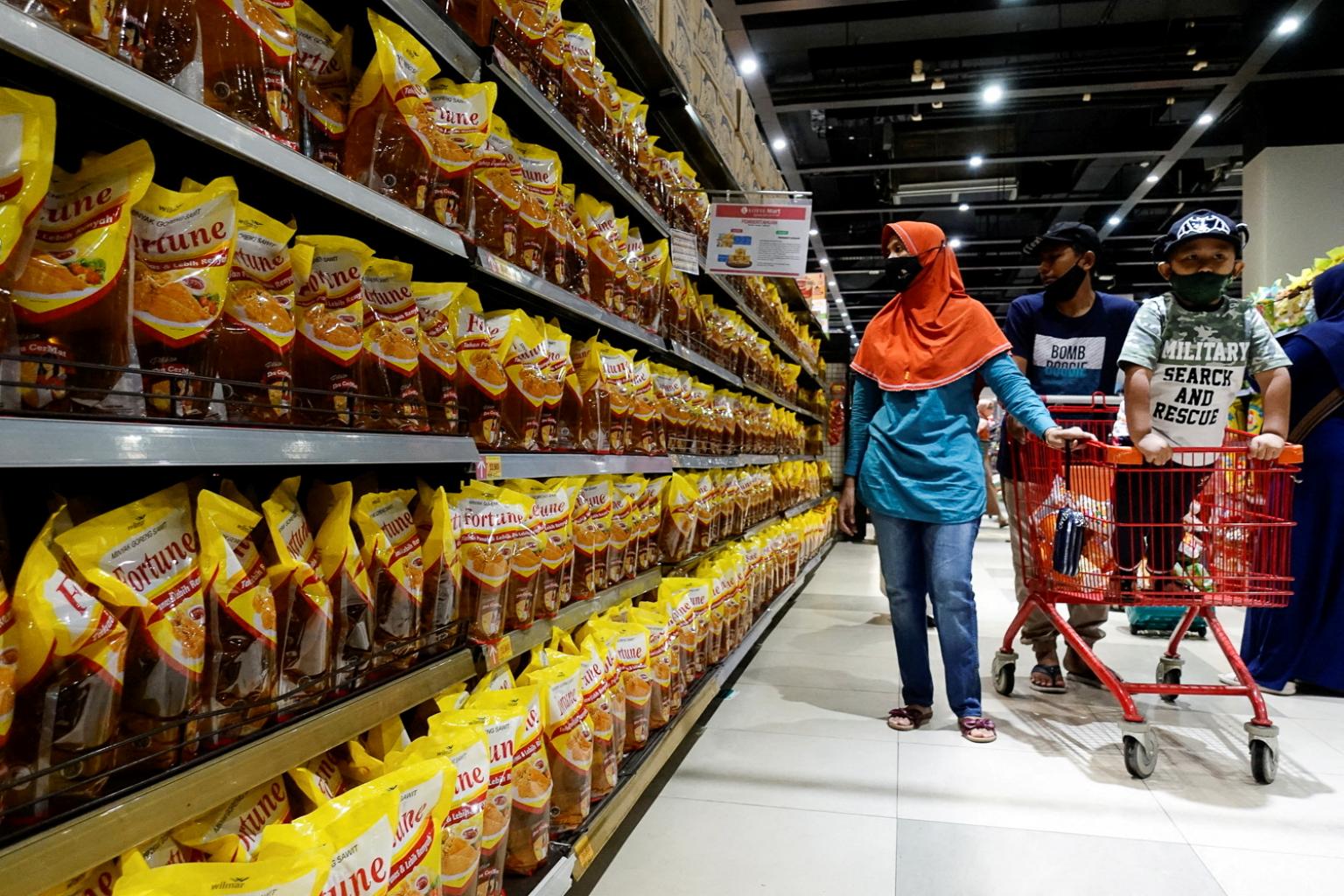Palm oil futures up over 3% in Malaysia on Indonesia's new domestic sales plan
Sign up now: Get ST's newsletters delivered to your inbox

Indonesia will impose a domestic market sales requirement to ensure 10 million tonnes of cooking oil are kept at home.
PHOTO: REUTERS
Follow topic:
KUALA LUMPUR (REUTERS) - Malaysian palm oil futures surged on Friday, after a relief from Indonesia's plan to lift its export ban was usurped by Jakarta, saying it would impose a domestic sales requirement for the vegetable oil.
The benchmark palm oil contract for August delivery on the Bursa Malaysia Derivatives Exchange gained RM223, or 3.67 per cent, to RM6,295 a tonne by the midday break.
For the week, it is set to drop 1.2 per cent, in its third consecutive weekly loss.
Indonesia said it would lift an export ban on palm oil from Monday after imposing the policy on April 28, allowing for supply from the world's biggest producer to re-enter the global market.
But Coordinating Minister for Economic Affairs Airlangga Hartarto also said Indonesia would impose a domestic market sales requirement to ensure 10 million tonnes of cooking oil were kept at home.
Malaysia, the world's second-largest producer, said it was still reviewing a temporary cut on palm oil export tax and would continue to monitor the current situation involving Indonesia's policy changes.
"The palm oil market is moving wildly on news, news and news only, creating new and increased volatility," said Mr Sandeep Singh, director of the Farm Trade, a consulting and trading firm.
Indonesia accounts for almost 60 per cent of the global supply of palm oil, widely used in products ranging from cakes to cosmetics.
Destination markets are on very low pipeline supplies and still need to buy even after all the demand rationing, he added.
The domestic rule policy is still quite restrictive, independent broker Marcello Cultrera said. In the short term, palm oil prices will likely rise to RM6,350-RM6,650 and will reverse from RM6,650 and above, he said.
The contract will likely average at RM6,500 in the second quarter, and gains will be capped by rising monthly production and as importers buy hand to mouth, said Mr Oscar Tjakra, a senior analyst at food and agribusiness research at Rabobank.

